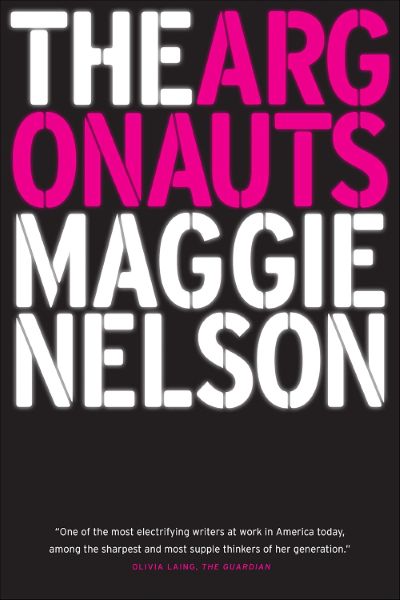Redefining Realness: My Path to Womanhood, Identity, Love & So Much More
A transgender rights activist's autobiographical work that explores the multiple meanings of feminine identity through personal growth experiences, challenging mainstream society's rigid perceptions of authenticity and femininity.

📝 Book Review
In the historical progress of 21st-century transgender rights movements, Janet Mock’s “Redefining Realness: My Path to Womanhood, Identity, Love & So Much More” stands as a milestone, redefining what constitutes “real” feminine experience through profound personal narrative and brave social critique. This 2014 autobiographical work is not only a transgender woman’s coming-of-age epic but a powerful challenge to society’s rigid concepts about gender, race, class, and identity. Through sharing her journey from an impoverished mixed-race transgender teenager to becoming one of America’s most respected rights advocates, Mock demonstrates the complexity of identity construction and the diversity of feminine experiences.
Born in 1983, Mock’s life trajectory is itself a legend of resilience, courage, and self-realization. As a Hawaiian-born mixed-race transgender woman, she experienced multiple identity challenges during her development. Her childhood was spent in poverty, with family structural instability and economic hardship compounding the difficulty of exploring identity. However, these seemingly disadvantageous conditions shaped her strong character and keen social insight, enabling her to become an outstanding writer, television producer, and rights advocate.
Deconstructing “Authenticity”
The most outstanding contribution of “Redefining Realness” lies in its profound deconstruction of the concept of “authenticity.” In mainstream society’s discourse system, transgender people frequently face questions about “realness”—they are required to prove their gender identity is “real,” as if only through some external verification can they gain recognition. Mock powerfully counters this notion through her experience, pointing out that everyone’s gender identity is real and doesn’t need to be proven legitimate through medical procedures, social acceptance, or any external standards.
This challenge to authenticity extends beyond transgender experience to question broader assumptions about how identity is validated and who has the authority to determine what is “real.” Mock’s approach insists that self-knowledge and self-definition are fundamental human rights that cannot be subject to external approval or verification.
The book’s title itself becomes a manifesto—“redefining realness” suggests that current definitions are inadequate and that marginalized people have the power and right to create new definitions that honor their experiences and identities.
Comprehensive Portrait of Transgender Women’s Experience
This work’s portrayal of transgender women’s experience is both nuanced and comprehensive. Starting from childhood confusion about gender identity, Mock records in detail the physical changes, social pressures, and inner struggles she faced during adolescence. She honestly shares her experience of sex work during her teenage years—this candor not only requires enormous courage but provides important perspectives for understanding the survival predicaments faced by transgender women, particularly transgender women of color.
Her narrative avoids the trap of victim narratives, instead demonstrating a complex person’s agency and resistance within difficult circumstances. Mock’s approach shows how individual agency can exist within systemic oppression, while never minimizing the real dangers and challenges faced by transgender people.
The memoir’s treatment of transition is particularly valuable, as it provides detailed insights into the practical, emotional, and social aspects of gender transition. Mock describes not only medical procedures but the complex negotiations required in family relationships, educational settings, and romantic partnerships.
Education and Social Mobility
Mock’s emphasis on education’s importance in changing destiny holds profound social significance. Through her academic journey from community college to New York University’s journalism program, she demonstrates how education can provide upward mobility possibilities for marginalized groups. Her success results not only from personal struggle but also embodies the importance of institutional support for marginalized groups.
Her experience at NYU, particularly how she maintained her identity within a relatively privileged environment, provides important reference for other young people facing similar circumstances. Mock’s educational journey also highlights the significance of supportive mentors and inclusive institutional cultures in enabling success for marginalized students.
The memoir demonstrates how education can serve as both personal liberation and political tool, providing marginalized people with skills, knowledge, and credentials needed to challenge systems that oppress them.
Family Relationships and Acceptance
The book’s exploration of family relationships is especially moving. Mock’s relationship with her mother progressed through a complex process from confusion and conflict to understanding and acceptance. She details how her mother gradually came to understand and support her identity choices—this process of family reconciliation resonates deeply with many LGBTQ+ readers.
She also honestly confronts difficulties and regrets in her relationship with her father, showing the complex situations transgender people may face in family relationships. These family dynamics are presented with nuance, avoiding both idealization of acceptance and demonization of initial rejection.
The memoir’s treatment of family illustrates how coming out and transition affect not only the transgender person but entire family systems, requiring patience, education, and mutual adjustment from all involved.
Romantic Relationships and Intimacy
“Redefining Realness” provides rare in-depth perspectives on transgender women’s emotional lives through its portrayal of romantic relationships. Mock shares her relationship experiences with different partners, including meeting and falling in love with her future husband Aaron. Her narrative breaks stereotypes about transgender people’s emotional lives, showing that transgender women equally desire and possess normal romantic relationships.
Her discussion of when and how to disclose transgender identity to partners provides valuable experience sharing for other transgender people. Mock’s approach to disclosure emphasizes the importance of safety while also advocating for authentic relationships based on honesty and mutual respect.
The memoir also addresses broader questions about how society’s transphobia affects transgender people’s intimate relationships and how supportive partnerships can provide crucial foundation for thriving despite social challenges.
Media Representation and Public Education
This work holds important significance in media representation and public education. Mock herself is a media professional who deeply understands media’s role in shaping public perceptions of transgender people. She shares her experience working at fashion magazine Marie Claire and later becoming a television producer, proving that transgender people can not only survive in media industries but become important forces in changing media narratives.
Her success in media becomes particularly significant as she uses her platform to educate the public and provide more accurate representation of transgender experiences. Mock’s work demonstrates how increased visibility can contribute to social change while also acknowledging the pressures and responsibilities that come with being a public figure.
The memoir also critiques harmful media representations of transgender people, showing how sensationalized or inaccurate coverage can perpetuate dangerous stereotypes and contribute to discrimination.
Intersectional Analysis
Mock’s analysis of intersectionality holds profound theoretical significance. As a woman of color who is transgender, she faces multiple forms of marginalization based on race, gender, and class. Her experience clearly demonstrates how different identity markers interact to create unique forms of oppression and challenge.
Her discussion of “passing” is especially profound—she points out that while “passing” may bring safety and acceptance, it may also reinforce stigmatization of transgender people by implying that only transgender people who look like cisgender people are acceptable.
The intersectional perspective Mock provides is crucial for understanding how transgender oppression connects with other systems of inequality. Her analysis shows how racism, sexism, classism, and transphobia work together to create particular vulnerabilities for transgender women of color.
Contributions to Transgender Rights Movement
This work’s contributions to the transgender rights movement are multifaceted. First, it provides a positive role model for transgender people, proving that transgender people can live fulfilling lives. Second, it offers cisgender readers a window into understanding transgender experience, helping reduce prejudice and discrimination. Finally, it provides important insights for policymakers and service providers to better understand transgender community needs.
Mock’s memoir also contributes to transgender rights by providing personal testimony that humanizes political and legal issues. Her story makes abstract questions about discrimination and equality concrete and urgent, helping build empathy and support for transgender rights.
The book’s commercial success—reaching the New York Times bestseller list—also represents important progress in mainstream acceptance of transgender voices and stories.
Literary Style and Accessibility
The writing style of “Redefining Realness” is both accessible and powerful. Mock employs rich details and vivid scene descriptions that allow readers to experience her growth journey firsthand. Her language is both honest and elegant, both personal and universally meaningful. She skillfully balances personal narrative with social analysis, creating a narrative style that is both engaging and educational.
This accessibility serves important political purposes by making transgender experience understandable to broad audiences while maintaining the complexity and nuance of Mock’s actual experience. The memoir avoids both oversimplification and academic jargon, creating space for readers to develop empathy and understanding.
Impact on LGBTQ+ Literature and Beyond
This work’s position in LGBTQ+ literature is pivotal. It not only enriches transgender literary content but also provides new possibilities for autobiographical literature. Mock’s success proves that marginalized voices not only deserve to be heard but can become important forces in mainstream publishing markets.
The memoir’s influence extends beyond literature to activism, policy, and popular culture. Mock’s visibility and articulate advocacy have contributed to increased transgender representation in media and politics, while her writing has provided template for other transgender authors and activists.
Her work also contributes to broader conversations about identity, authenticity, and belonging that resonate beyond transgender communities, offering insights relevant to anyone navigating questions of identity and social acceptance.
Policy and Healthcare Implications
Mock’s discussion of medical resource access holds important policy significance. She details her process of receiving gender-affirming surgery, including economic burden, medical procedures, and psychological preparation. Her narrative provides important firsthand material for improving transgender medical services and reference for related policy development.
These detailed accounts of navigating healthcare systems provide crucial testimony for advocates working to improve transgender healthcare access and quality. Mock’s experience illustrates both the importance of gender-affirming care and the barriers that prevent many transgender people from accessing it.
Mental Health and Psychological Support
In terms of mental health, “Redefining Realness” provides important insights. Mock honestly shares psychological distress and struggles she experienced during identity exploration—this candor provides psychological support for other transgender people and important resources for mental health professionals to understand transgender needs.
Her approach to mental health emphasizes resilience and agency while acknowledging the real psychological toll of navigating transphobia and discrimination. The memoir demonstrates how supportive relationships, affirming environments, and access to appropriate care can contribute to psychological wellbeing.
Legal Rights and Social Justice
The work’s discussion of legal rights is also important. Mock’s experience encompasses multiple legal issues from identity document changes to anti-discrimination protection. Her narrative provides personalized perspectives on legal reform, making abstract legal issues concrete and urgent.
Her story illustrates how legal recognition and protection directly affect transgender people’s daily lives, safety, and opportunities. Mock’s advocacy contributes to ongoing efforts to secure equal rights and protection under law for transgender people.
Global Impact and Continuing Relevance
Although Mock’s experience is rooted in American social and cultural contexts, the themes she raises about identity, self-acceptance, and social inclusion have universal significance. Around the world, transgender rights activists and supporters have drawn strength and wisdom from her experience.
The memoir has been translated into multiple languages and has influenced transgender rights movements internationally. Mock’s framework for understanding authenticity and self-determination provides tools for activists working in different cultural and political contexts.
Contemporary Significance and Ongoing Influence
Today, “Redefining Realness” remains important literature in transgender studies and LGBTQ+ literature. It not only provides profound insights for understanding transgender experience but more importantly expands our recognition of human experience diversity. In the current context where transgender rights face new challenges, rereading this classic work reveals that Mock’s wisdom and courage continue to have strong practical significance.
Her redefinition of authenticity applies not only to transgender people but to all people seeking to find and define their identities. This work reminds us that everyone has the right to define their own reality, to live their own remarkable lives, no matter how different or unusual such lives might appear.
Conclusion: Legacy of Authenticity and Courage
“Redefining Realness” stands as both memoir and manifesto, personal story and political statement. Mock’s courage in sharing her story has created possibilities for countless other transgender people to live authentically and openly. Her success demonstrates that transgender voices not only deserve platforms but can create significant cultural and political change when given opportunities to speak and be heard.
The book’s lasting contribution lies in its insistence that authenticity cannot be externally validated but must be self-determined, and that every person’s identity and experience deserves respect and recognition. Through her powerful narrative, Mock has not only redefined realness for transgender people but challenged all readers to examine their own assumptions about identity, authenticity, and what it means to live as one’s true self.
In continuing struggles for transgender rights and broader social justice, Mock’s memoir serves as both inspiration and practical guide, demonstrating how personal testimony can become powerful tool for social change and how individual courage can contribute to collective liberation.
Book Info
Related Topics
🛒 Get This Book
 Buy on Amazon
Buy on Amazon Related Books
Book Discussion
Share your thoughts and opinions on this book and exchange insights with other readers
Join the Discussion
Share your thoughts and opinions on this book and exchange insights with other readers
Loading comments...


